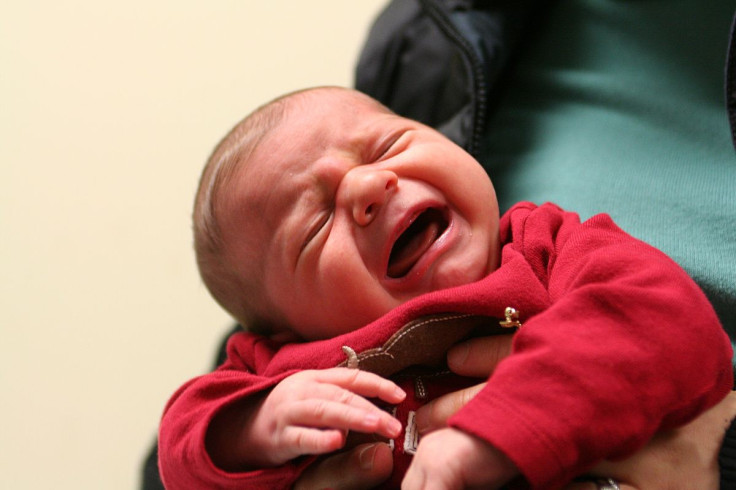Why a Baby's Cry Is Impossible to Ignore

Scientists have found why no matter how hard you try, the sound of a crying baby is almost impossible to ignore.
The latest findings could explain why the sound of a bawling infant is enough to keep us from falling asleep on a train or on an airplane.
Researchers found that the sound of a baby in distress provokes a sudden surge of emotion significantly stronger than that caused by a crying adult.
It was previously thought that the brain could not process such complex facets of sound in such a short time. Researchers said that the human brain most likely developed a particular sharp response to the noise to allow us to react faster and more sensitively to the needs of our offspring.
Researchers from Oxford University scanned the brains of 28 men and women as they listened to a variety of calls and cries and revealed that 100 milliseconds, the time it takes to blink, after the cries of babies were played, participants had significantly higher activity levels in two regions of the brain in charge of processing of emotions.
Results from the study, presented at the Society for Neuroscience's annual conference in New Orleans, showed that the participants' response to the baby's cry was particularly strong.
Furthermore, researchers noted that the response was seen in men and women as well as people who had no children of their own.
"You might read that men should barely notice a baby and step over it and not see any of them but it's not true," Researcher Dr. Christine Parsons said at the conference, according to Daily Mail. "There is a specialized processing in men and women which makes sense from an evolutionary perspective that both genders would be responding to these cues."
"The study was in people who were not parents, have no particular experience of looking after babies and yet they are all responding at 100ms to these particular sound, so this might be a fundamental response present in all of us regardless of parental status," Parsons said.
Co-researcher Katie Young added that it probably takes longer for someone to recognize their own baby's cry.
"When it comes to differentiating your own baby's sound, it might be that this happens much later in time because you will be doing much more fine-grained analysis," Young said.
Past research from the same group of researchers showed that the sound of a baby's cry also sped up a person's reactions. Past findings showed that adults who heard the sound did better on an arcade game that harnessed speed, accuracy and dexterity, compared to when they heard recordings of adults crying or high-pitched bird sounds.
"Few sounds provoke a visceral reaction quite like the cry of a baby," co-researcher Morten Kringelbach said in a statement. "For example, it is almost impossible to ignore crying babies on planes and the discomfort it arouses, despite all the other noises and distractions around."
Researchers will next investigate whether mothers suffering from postnatal depression respond differently to the sound of their babies crying. They claim that the discovery could lead to new treatments.
"The first 18 months of life are so important for development and shaping who we become, so any adversity during this period can have a major long-term impact," Young said, according to The Telegraph. "One example of this adversity would be postnatal depression, where people perhaps have more difficulties in picking up and responding to cues from their infant."



























